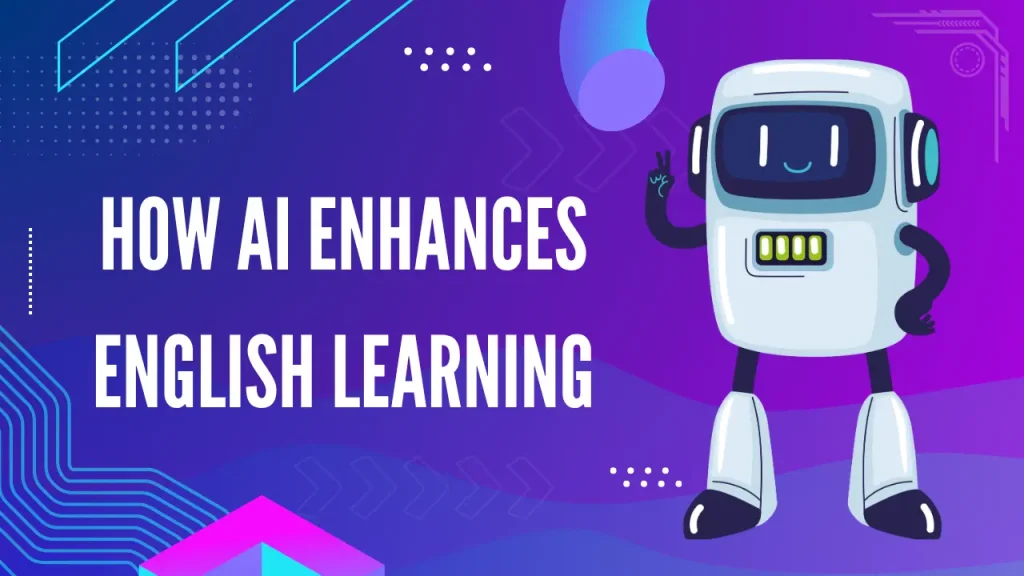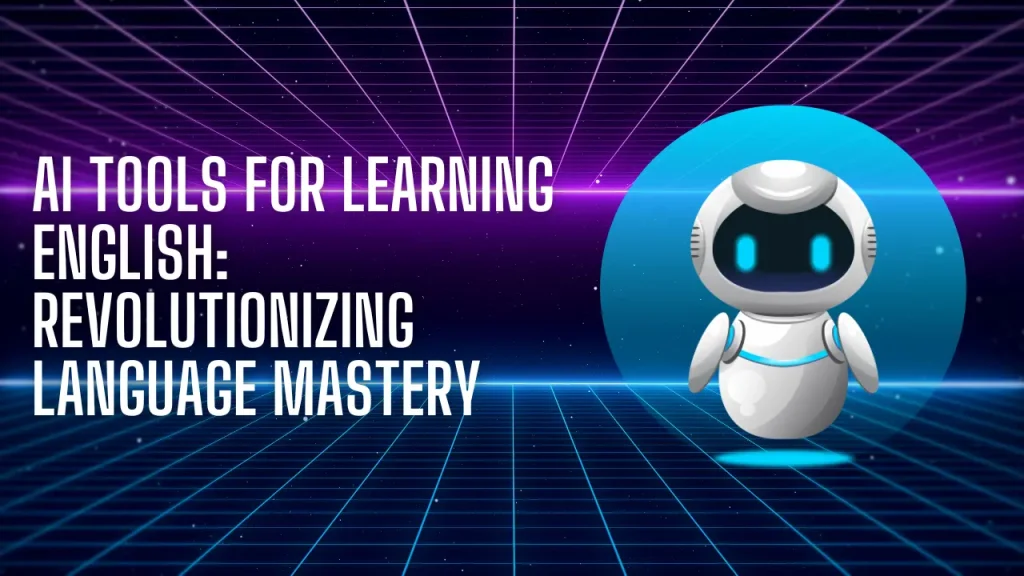In today’s digital age, the way we learn languages has dramatically evolved. Among the most remarkable advances is the use of AI tools for learning English. From personalized grammar coaching to interactive conversation practice, artificial intelligence is transforming English language education, making it more accessible, engaging, and effective.
In this article, we’ll explore how AI tools can elevate your English skills, review some of the top AI-powered platforms, and explain why this technology is a game-changer for learners of all levels.
Why Trust This Guide?
This guide is written by language learning enthusiasts with years of experience in educational technology. We’ve evaluated dozens of AI language tools, consulted with ESL instructors, and drawn on reputable research in applied linguistics and artificial intelligence. All insights are tailored to help learners make informed, practical choices.

How AI Enhances English Learning
AI tools stand out because they bring three crucial benefits:
-
Personalized Learning Paths:
Unlike static textbooks, AI platforms analyze your strengths and weaknesses to adapt lessons in real time. Whether you struggle with verb tenses or pronunciation, the system adjusts to focus on what you need most. -
24/7 Availability:
Learning doesn’t have to wait for a class schedule. AI tools are available anytime, letting you practice English at your convenience. -
Instant, Data-Driven Feedback:
Grammar mistakes, mispronunciations, awkward phrasings — AI tools can catch these in seconds and provide corrections, so you learn on the spot.
Top AI Tools for Learning English
Here are some of the most reliable and effective AI-driven platforms to consider.
1. Duolingo
A globally popular app, Duolingo uses AI to create adaptive lessons. Its gamified approach keeps you motivated while its smart algorithms ensure repeated exposure to weak areas.
Best for: Beginners to intermediate learners who want a fun, daily practice routine.
2. Grammarly
Grammarly’s AI checks your writing for grammar, punctuation, clarity, and tone. It also explains mistakes so you can learn from them.
Best for: Professionals, students, and anyone who writes in English regularly.
3. Elsa Speak
Elsa uses advanced speech recognition to pinpoint pronunciation errors and guide you in correcting them, even highlighting subtle phonetic issues.
Best for: Learners aiming to speak English more clearly and confidently.
4. ChatGPT
AI chatbots like ChatGPT let you practice conversational English by simulating realistic dialogues. You can ask grammar questions, request example sentences, or role-play interviews.
Best for: Intermediate to advanced learners who want to practice fluency and real-world communication.
5. Rosetta Stone
Rosetta Stone’s TruAccent AI provides feedback on pronunciation and helps reinforce vocabulary through contextual immersion.
Best for: Those looking for structured courses with a strong focus on speaking.
The Role of AI in Listening and Reading
AI doesn’t just help with speaking and writing. Tools like LingQ and News in Levels use smart algorithms to curate articles and audio content matched to your proficiency level, ensuring you’re constantly exposed to understandable yet challenging material.
Addressing Common Concerns
Can AI fully replace human teachers?
No. AI is an excellent supplement, offering personalized practice and feedback, but human teachers provide cultural context, nuanced explanations, and emotional support that AI cannot replicate.
Is my data safe with AI tools?
Reputable platforms use robust encryption and privacy policies. Always check if the tool complies with standards like GDPR or CCPA before sharing personal data.
Do I need to pay for quality AI tools?
Many tools have free versions, but premium subscriptions often unlock more advanced features like in-depth feedback or unlimited practice sessions.
Expert Tips for Using AI Tools Effectively
Set realistic goals: Use AI to focus on one or two skills at a time, like improving spoken fluency or mastering phrasal verbs.
Combine tools: Try Grammarly for writing, Elsa for speaking, and ChatGPT for conversation — each targets a different skill.
Be consistent: Even 10–15 minutes daily with an AI tool yields far better results than occasional cramming.
Reflect on feedback: Don’t just accept corrections — understand why they’re offered.
Success Stories: How Learners Are Using AI to Master English
Share real-life examples or brief case studies of people who improved their English skills significantly with the help of AI tools. This builds trust and shows tangible outcomes.

Comparing Traditional vs. AI-Powered English Learning
Discuss the differences between conventional classroom or tutor-led methods and AI-driven learning, highlighting the pros and cons of each approach.
Future Trends: What’s Next for AI in Language Education?
Explore emerging technologies like generative AI tutors, VR/AR English immersion, or emotion-aware learning apps that could redefine language acquisition.
Resources for Getting Started with AI English Learning
Provide a list of useful links, free trials, official websites of the tools mentioned, and communities where learners can ask questions and share tips.
Final Thoughts: Embracing the Future of Language Learning
AI tools for learning English are not a futuristic promise — they’re here now, reshaping how millions master the language. With smart algorithms, speech recognition, and adaptive learning, these tools act like personal tutors in your pocket.
By integrating AI into your study routine, you can accelerate your English learning journey, build confidence, and enjoy a truly customized educational experience.
Frequently Asked Questions (FAQs)
What’s the best AI tool for English pronunciation?
Elsa Speak is highly recommended for pronunciation thanks to its detailed phonetic feedback.
Can AI help me prepare for IELTS or TOEFL?
Yes. Many platforms, including ChatGPT and Duolingo, can simulate speaking and writing prompts similar to those found in standardized tests.
How long does it take to see improvement?
If you use an AI tool daily for at least 15 minutes, noticeable improvement often comes within a few weeks, depending on your starting level.
Ready to Level Up Your English?
Start exploring these AI tools today and experience firsthand how they can make learning English more intuitive, personalized, and effective than ever.

